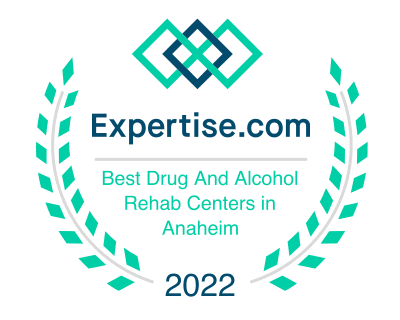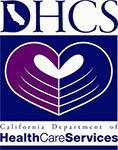Say the words “addiction recovery,” and many people immediately conjure up an image of Alcoholics Anonymous or Narcotics Anonymous. These are called 12-step programs, named for a sequence of guiding principles or “steps” outlined by the founders of Alcoholics Anonymous. Despite their popularity, drug rehab, which preaches the necessity of suffering, is less safe and effective than medical interventions for detoxification. Learn about the flaws in traditional Drug Rehabs and the 12-step model. Furthermore, understand how these programs can even be harmful to those recovering from addiction.
What Is the Theory Behind 12-Step Programs?
The first 12-step program was Alcoholics Anonymous, founded in 1935 by two recovering alcoholics in Ohio. They wrote a book outlining 12 principles, including admitting to being powerless over alcohol, making a moral inventory, admitting faults to others, and making amends to those affected by your addiction. Members of 12-step groups meet and anonymously share their testimonies. These groups are facilitated by individuals in recovery who have maintained sobriety for an extended period. Proponents of 12-step programs argue that they are an effective way for people to overcome addiction’s physical, mental, and spiritual aspects.
Problems with 12-Step Programs
Despite the popularity of 12-step programs, there is limited scientific evidence supporting their use. Part of this is due to the program’s anonymous nature, making it difficult to run controlled research studies. Some experts estimate that the long-term success rates of 12-step programs are as low as 5-10%, making them scarcely more effective than “going cold turkey” or no intervention at all.
Some of the significant limitations of 12-step programs include:
- The assumption that addiction is a moral defect. One of the core principles of 12-step programs is that you are powerless to control your addiction and that you should “give it up” to a higher power. This assumes that addiction is a moral defect or character flaw, causing many people to feel stigmatized and hopeless. In reality, we know that addiction is a complex condition caused by substance use, which affects brain function. Rather than a moral defect, addiction is a consequence of disrupted brain chemicals and maladaptive behaviors. Additionally, long-term addiction is often a result of mental health problems.
- Lack of awareness of the physiological science directly related to addiction effects. The first 12-step program was developed in 1935 when very little neuroscience about addiction or brain function was available. In the subsequent decades, scientists have studied how taking opioids, and other substances affect and change brain response. For example, chronic opioid use compromises the brain’s structure and its responses and functions. Medical interventions for Opioid Use Disorder use this significant knowledge by combining medical detox with behavior therapy to reset the way your brain functions.
- Leadership comes from peers rather than medical experts. The 12-step program model relies on former patients to lead groups rather than a trained professional in addiction medicine and mental health. The lack of proper training can lead to misinformation, missed critical emotional assessments, and poor-quality advice. All of these factors are often the reason for treatment failure and relapse.
- No supervised detox. Rehabs and outpatient twelve-step programs often do not offer the much-needed medical detox. The high level of withdrawal distress, combined with the lack of physical and emotional stability, can result in dangerous situations.
Benefits of Non-12 Step Programs – Drug Rehabs
Of course, 12-step programs get some things right. For example, peer support and emphasis on spirituality can be significant to many people. Fortunately, evidence-based medical interventions can also be followed by group and individual therapy, which can address these critical aspects of addiction.
So, if 12-step programs lack scientific evidence, where should individuals struggle with opioid addiction turn? The answer is to find evidence-based treatments such as inpatient medical detoxification. These programs combine medical detox with behavior therapy to support individuals through the recovery process.
Benefits of medical management and professional, emotional care over 12-step programs alone include:
- Less stigma. Medical detox correctly recognizes that addiction is a brain disease, not a moral failing. You can receive treatment in an accredited, full-service hospital, just like you would for any other type of illness.
- Higher success rate. Medical detox programs such as the Waismann Method have nearly a 100% detox success rate when patients receive medical management through a withdrawal in an inpatient setting.
- Less disruptive to your everyday life. For adherents to rehabs and 12-step programs, the solution to addiction is a long-term inpatient stay, followed by endless meetings for the rest of your life. In some cases, people in recovery go to meetings every day. Saily meetings can be enormously disruptive to your everyday productive life, while it can also be a possible trigger for cravings.
- In contrast, medical detox requires a short stay in the hospital, based on your specific health and dependence needs. You may also choose to participate in supportive aftercare activities, including behavior therapy, to address addiction triggers and root causes. Once you have achieved sustained sobriety, treatment continues on an as-needed basis.
- Reduced need for maintenance drugs. Many rehabs provide maintenance drugs such as Suboxone or Methadone. These drugs replace one dependence with another, meaning that you continue to take an opioid drug forever. In contrast, medical detox clears opioids from your system and promotes sustained sobriety.
Conclusion
There is no one answer for all addiction issues, and there is no one type of treatment that is right for everyone. People should receive a professional assessment before deciding on a specific drug treatment plan. It is essential to realize that science has dramatically evolved, which allows for better, more comfortable, and effective drug treatment. If you or someone you love is struggling with addiction, seek evidence-based medical treatment from qualified experts like those at the Waismann Method. Contact us today to learn more.
Source
http://www.wbur.org/radioboston/2014/03/31/12-step-dodes
https://stgregoryctr.com/problems-with-12-step-programs/
Reviewed by Clare Waismann, CATC, Founder of Domus Retreat
All topics for the DomusRetreat.com blog are selected and written based on high editorial quality standards and cited source material. Clare Waismann, CATC, and founder of Domus Retreat and Waismann Method® review all articles for accuracy, credibility, and relevancy. Clare Waismann as an authority and expert on opioid dependence and related topics covered on the DomusRetreat.com blog. Additionally, one of Domus Retreat’s specialists also reviews some articles depending on their area of expertise. For additional information and disclaimers regarding third-party sources and content for informational purposes only, please see our Terms of Service.







